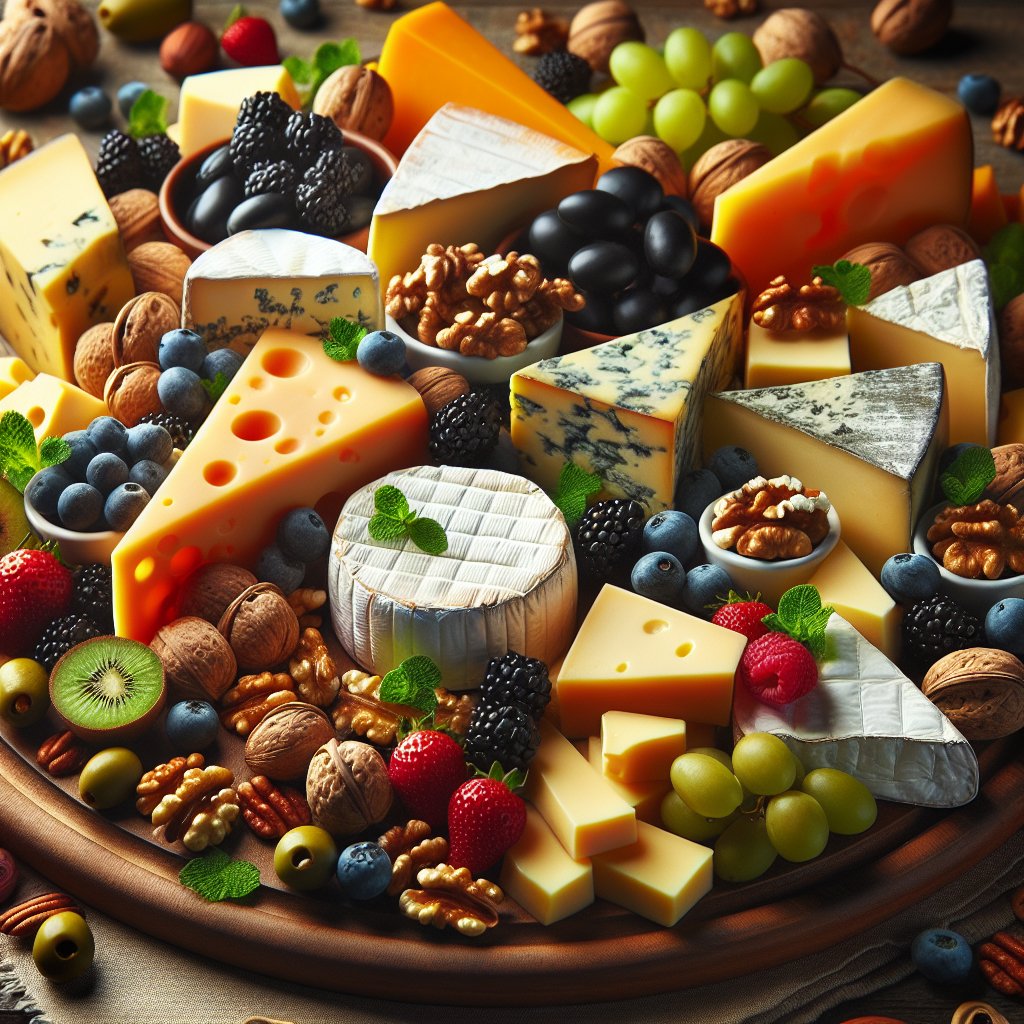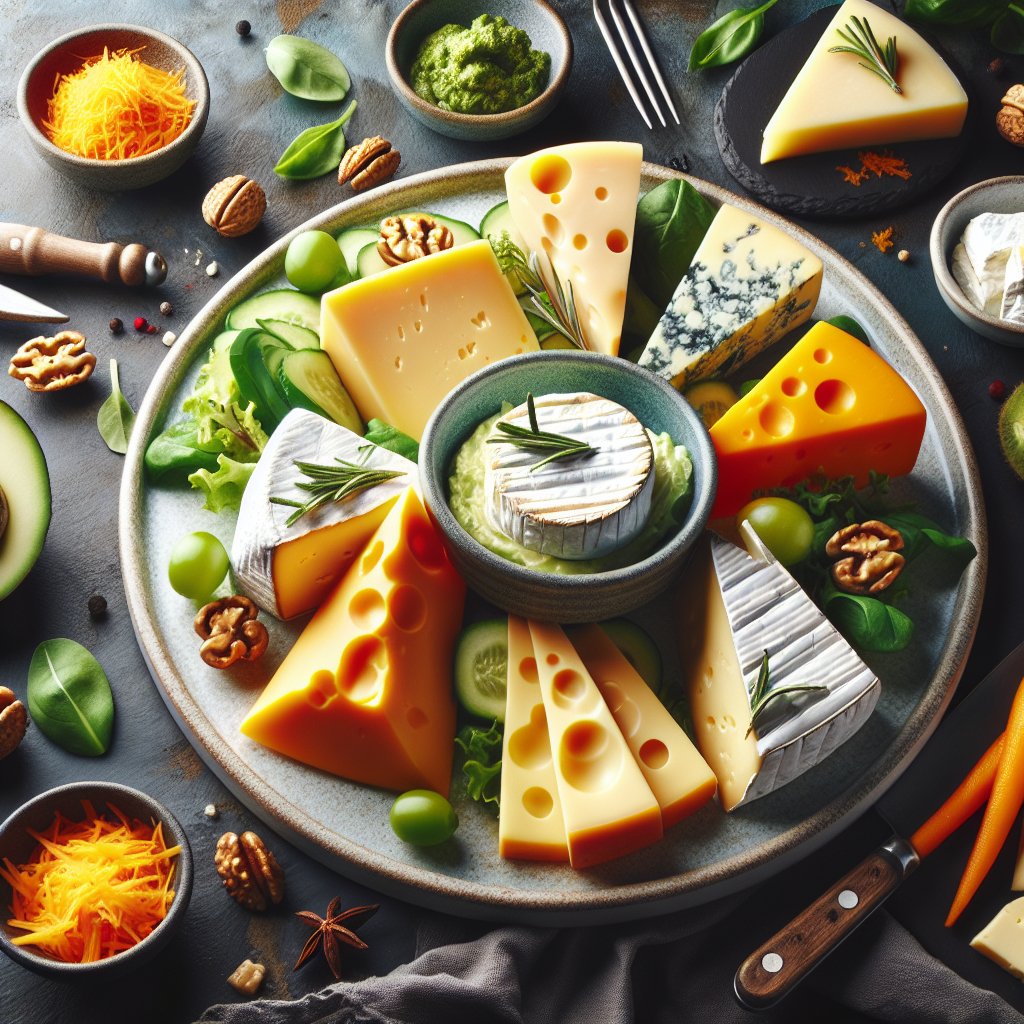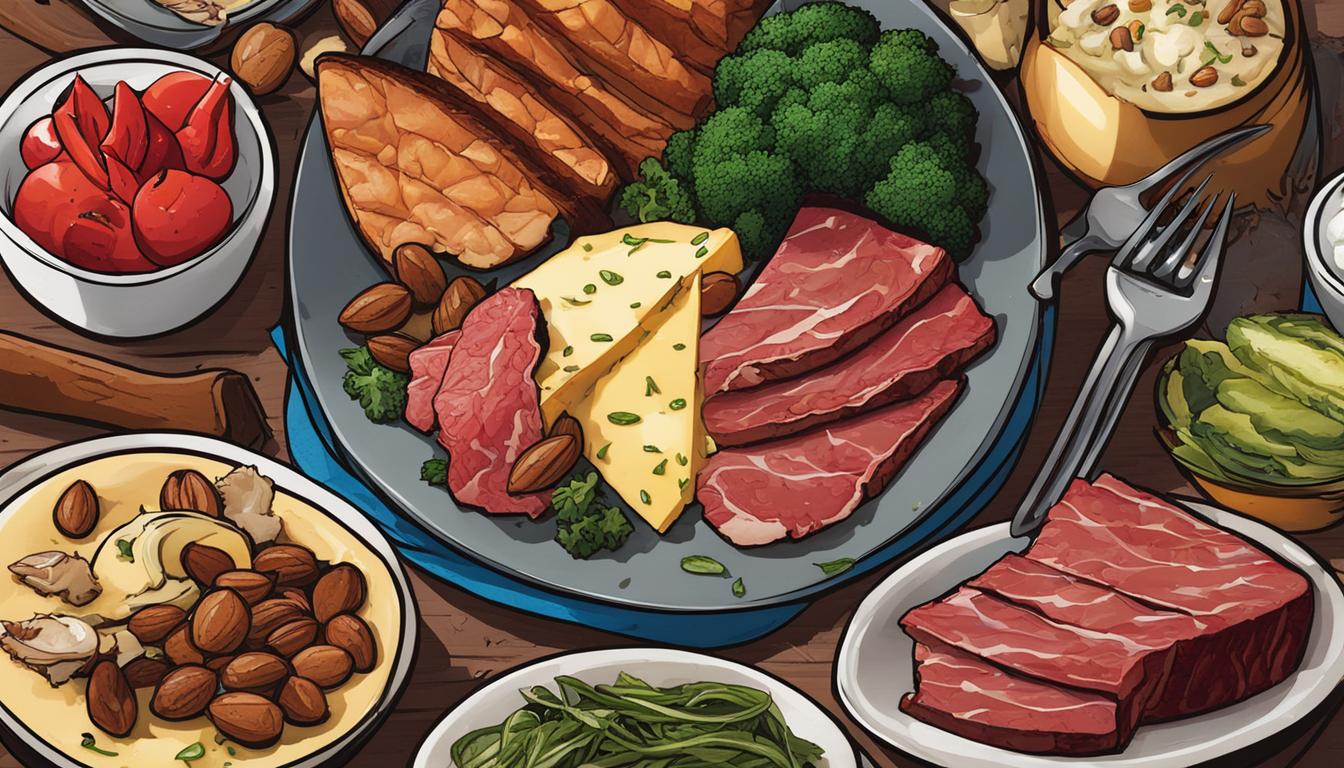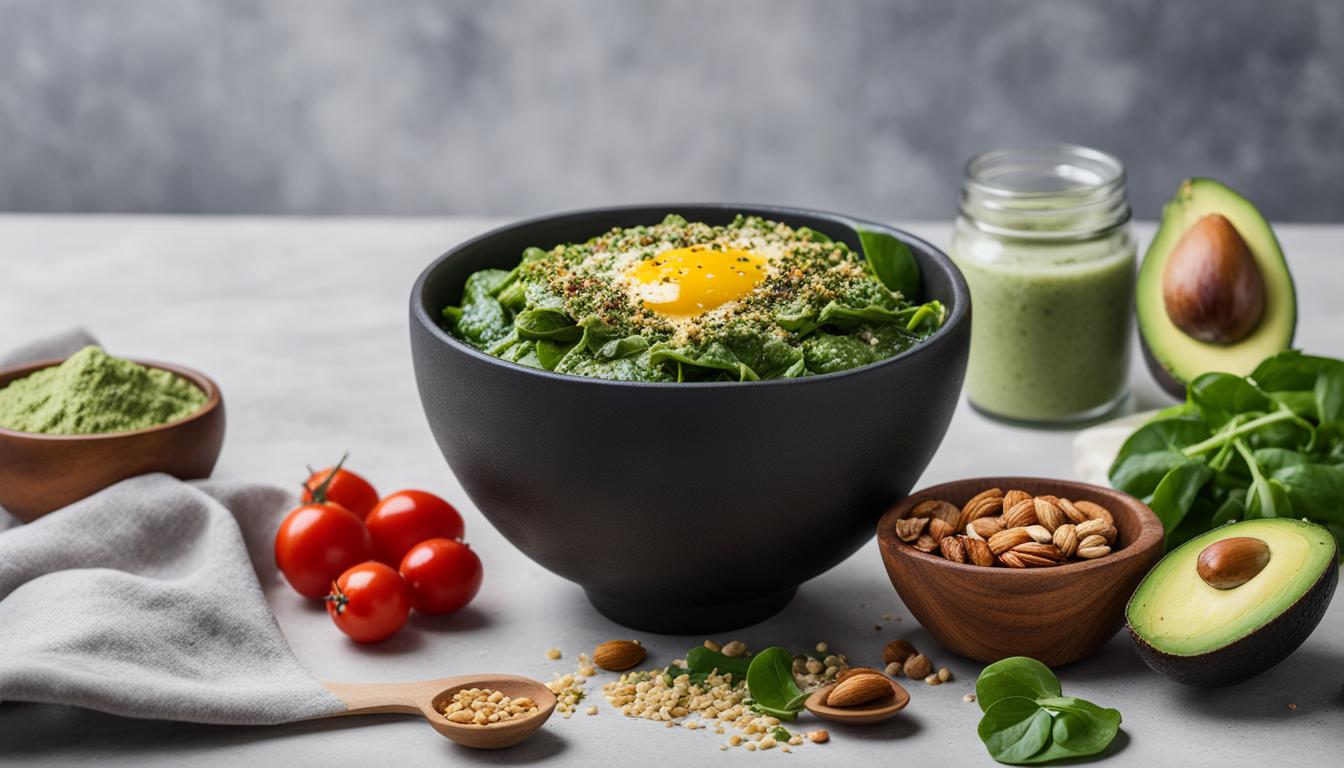Discover the Best Types of Cheese You Can Eat on Keto for Maximum Weight Loss and Flavor!
Explaining the Keto Diet: Embracing High-Fat and Low-Carb Foods
Hey there, keto enthusiasts! If you’re delving into the wonderful world of ketogenic dieting, chances are you’ve heard buzz about its focus on high-fat and low-carb foods. Embracing the keto lifestyle means shifting your body’s primary fuel source from glucose to fat, thereby encouraging it to burn fat more efficiently.
So, what exactly is the keto diet? Well, it’s a high-fat, moderate-protein, and low-carbohydrate eating plan designed to help your body enter a state of ketosis. This metabolic state prompts the body to use ketones produced in the liver as an alternative fuel source, in place of the glucose derived from carbohydrates.
The Science Behind Keto
Studies have shown that a ketogenic diet can be effective for weight loss, as well as improving metabolic health and even contributing to better mental focus. Research published in the European Journal of Clinical Nutrition found that overweight individuals following a ketogenic diet lost more weight and fat mass compared to those on a low-fat diet, even when the calorie intake was not restricted.
Additionally, a study in The American Journal of Clinical Nutrition suggests that a ketogenic diet may enhance the body’s ability to burn fat for fuel, leading to a reduction in overall body weight and improved cardiovascular health markers.
High-Fat, Low-Carb Foods
A hallmark of the ketogenic diet is its emphasis on high-fat foods, as they’re essential for reaching and maintaining ketosis. Foods like avocados, nuts and seeds, and of course, cheese, are cherished staples in the keto community. It’s important to note that not all cheeses are created equal when it comes to the keto diet.
When considering the best types of cheese to enjoy on keto, it’s crucial to understand that the focus should be on full-fat, low-carb options. Opt for cheeses that are rich in flavor and healthy fats, while containing minimal carbohydrates. This ensures that you stay within your daily carbohydrate limit while indulging in the creamy goodness of cheese.
Making informed choices about the types of cheese you consume on the keto diet is key to reaping its benefits and savoring maximum flavor while maintaining your weight loss goals. Ready to discover the best types of cheese for keto? Keep reading as we journey through a delectable array of keto-approved cheeses that are sure to elevate your culinary experience.

Benefits of Cheese on Keto Diet
Cheese is an essential ingredient in many ketogenic diets. Not only is it delicious and versatile, but it also offers numerous benefits for those following a low-carb, high-fat diet.
When it comes to the keto diet, cheese is a superstar. It is high in fat, low in carbohydrates, and contains a moderate amount of protein, making it a perfect choice for those looking to maximize their weight loss and flavor.
Research has shown that incorporating cheese into a ketogenic diet can promote a feeling of fullness and satisfaction, leading to reduced overall calorie intake. According to a study published in The American Journal of Clinical Nutrition, the high-fat content in cheese can help to increase the levels of cholecystokinin (CCK), a hormone that promotes feelings of fullness and reduces appetite.
Moreover, cheese is rich in essential nutrients such as calcium, protein, and vitamin B12, which are crucial for maintaining overall health while following a ketogenic lifestyle. Additionally, certain types of cheese, such as cheddar and mozzarella, are particularly low in lactose, making them suitable for individuals who are lactose intolerant or have sensitivity to dairy products.
So, whether you’re sprinkling some parmesan on your zoodles or enjoying a cheese and spinach omelet, cheese is a fantastic option that not only enhances the flavor of your meals but also supports your keto goals!
Best Types of Cheese for Keto Diet
When it comes to the keto diet, cheese is often a staple in many people’s meal plans. Not only is cheese delicious, but it can also be a great source of healthy fats and protein, making it a perfect choice for those following a ketogenic lifestyle. So, what kind of cheese can you eat on keto? Let’s dive into identifying and describing specific cheeses that are suitable for keto.
Cheddar Cheese
Cheddar cheese is a popular choice for the keto diet due to its rich flavor and versatility. It is low in lactose and contains virtually no carbs, making it an ideal option for those looking to stay in ketosis. Additionally, cheddar cheese is high in calcium and protein, which are essential nutrients for overall health. Whether shredded over a salad or enjoyed as a snack, cheddar cheese is a fantastic addition to any keto meal plan.
Brie Cheese
Brie cheese is a creamy and indulgent option that is well-suited for the keto diet. With its high-fat content and minimal carbohydrates, brie cheese provides a luxurious texture and taste without derailing your ketogenic goals. The richness of brie can elevate both savory and sweet dishes, making it a versatile and satisfying choice for anyone following a keto lifestyle.
Goat Cheese
Goat cheese is another fantastic option for those on a keto diet. It is lower in lactose than cow’s milk cheese, making it easier to digest for some individuals. Goat cheese is also packed with healthy fats and contains little to no carbs, making it a great choice for enhancing the flavor of salads, omelets, and meat dishes. Its tangy and creamy profile can add depth to a wide range of keto-friendly recipes.
When selecting cheeses for your keto diet, it’s essential to pay attention to portion sizes, as the calories can add up quickly. However, incorporating a variety of cheeses like cheddar, brie, and goat cheese into your meals can provide a delicious and satisfying way to stay on track with your ketogenic lifestyle.

Nutritional Value of Cheese on Keto
Cheese is a beloved staple in many households, and luckily for keto enthusiasts, it can be a part of your diet too! Let’s dive into the nutritional content of cheese and how it fits into a keto diet plan.
Protein and Fat Percentages
Cheese is not only delicious but also packs a punch when it comes to nutritional value. It is a fantastic source of both protein and fat, making it a great addition to a keto meal plan. The exact percentages can vary depending on the type of cheese, but on average, most cheeses contain around 7-8 grams of protein per ounce and 8-10 grams of fat per ounce. These macronutrient ratios align perfectly with the requirements of a keto diet, where moderate protein and high fat intake are key.
Cheese and the Keto Diet
When following a keto diet, it’s essential to keep carb intake low while prioritizing fat consumption. Cheese fits this criterion admirably, as it is typically very low in carbohydrates. This makes it an ideal choice for those looking to maintain ketosis. Additionally, the high-fat content in cheese helps keep you feeling full and satisfied, curbing those midday cravings that can often derail dietary efforts.
It’s important to note that not all cheeses are created equal in the context of a keto diet. Fresh cheeses like mozzarella and cream cheese, as well as aged cheeses like cheddar, Gouda, and Swiss, are excellent choices. These types of cheese have minimal carbohydrates and are rich in flavor, making them perfect for both cooking and snacking while on a keto plan.
When incorporating cheese into your keto lifestyle, always be mindful of portion sizes, as the calories can add up. However, the versatility and nutritional benefits of cheese make it a valuable addition to any keto meal plan, providing both taste and satiety.
Incorporating Cheese into Keto Recipes
Cheese is a staple in the ketogenic diet, and for good reason. Not only is it delicious, but it can also be a key ingredient in a variety of keto-friendly recipes. Let’s explore some mouthwatering examples of dishes where cheese takes center stage:
Keto Cauliflower Mac and Cheese
This recipe replaces carb-heavy pasta with nutritious cauliflower, making it a low-carb, keto-friendly alternative to traditional mac and cheese. Combine steamed cauliflower with a creamy cheese sauce made from cream, cheddar cheese, and a hint of mustard for an indulgent yet guilt-free meal.
Keto Cheese and Bacon Stuffed Mushrooms
These savory stuffed mushrooms are a crowd-pleaser and a perfect appetizer for any keto gathering. Mix cream cheese, shredded mozzarella, and crispy bacon bits, stuff the mixture into mushroom caps, and bake until golden and bubbly. It’s a delightful blend of flavors that’s sure to satisfy your cravings.
Spinach and Feta Stuffed Chicken Breast
This recipe combines tender chicken breast with a flavorful filling of sautéed spinach and creamy feta cheese. Roll up the chicken, secure it with toothpicks, and bake until the cheese is melted and the chicken is cooked to perfection. It’s a protein-packed, cheesy delight that will leave you wanting more.
These are just a few examples to inspire you and get your creativity flowing when it comes to incorporating cheese into your keto lifestyle. The possibilities are endless, and there are numerous ways to enjoy cheese while reaping the benefits of a ketogenic diet.
Remember, when choosing cheese for your keto recipes, opt for high-quality, full-fat options that are low in carbohydrates. Always check the labels and nutritional information to ensure you’re making the best choices for your keto journey.

Potential Concerns with Cheese on Keto
Cheese is often considered a staple in the ketogenic diet, and for good reason. It’s delicious, versatile, and packed with essential nutrients. However, there are some potential drawbacks or considerations to keep in mind, particularly regarding the high saturated fat content in certain types of cheese.
Saturated Fat Content
One important consideration when consuming cheese on a keto diet is its saturated fat content. While saturated fats have been unfairly demonized in the past, some cheeses can be quite high in this type of fat. Research has shown that while saturated fats may not be as harmful as once thought, it’s still important to be mindful of the types and amounts of saturated fats consumed in the context of a ketogenic diet.
Opting for cheeses that are lower in saturated fat, such as mozzarella, feta, or cottage cheese, can be a practical approach to balancing fat intake while still enjoying the goodness of cheese on keto.
It’s important to note that not all saturated fats are created equal. Some studies suggest that certain types of saturated fats, like those found in cheese, may not have the same detrimental effects on heart health as previously believed. Nonetheless, moderation and variety are essential components of a balanced ketogenic diet.
Sodium Content
Another consideration when consuming cheese on keto is its sodium content. Certain types of cheese, particularly processed varieties, can be high in sodium. While sodium is an essential nutrient, excessive intake can lead to bloating and potential health risks, especially for individuals sensitive to high sodium levels. It’s advisable to opt for natural, low-sodium cheeses such as Swiss, mascarpone, or cream cheese, and to be mindful of overall sodium consumption from all sources in the diet.
Potential Weight Stall or Gain
For some individuals, especially those with insulin resistance, consuming high amounts of cheese on a keto diet may lead to a stall or even gain in weight. This can be attributed to the calorie density of cheese and its potential to trigger insulin release, albeit to a lesser extent than high-carbohydrate foods. Thus, it’s important to be mindful of portion sizes and to consider individual responses to cheese consumption.
Pairing cheese with fiber-rich vegetables can help mitigate potential insulin response and contribute to a feeling of fullness, thereby supporting weight management goals on a ketogenic diet.
Conclusion
While cheese offers numerous benefits on a ketogenic diet, it’s important to be aware of potential drawbacks or considerations such as high saturated fat content, sodium levels, and their impact on weight management. By choosing wisely and consuming cheese in moderation, individuals can still relish the satisfying flavors and health benefits that cheese brings to the keto table.
Conclusion: Moderation and Variety for Optimal Results
Cheese is undoubtedly a superstar ingredient in the realm of the ketogenic diet. It offers a myriad of benefits, making it an excellent choice for those seeking weight loss and flavorful meals. However, it’s essential to remember that moderation and variety are key when it comes to any dietary approach, including keto.
The Benefits of Including Cheese in a Keto Diet
First and foremost, various types of cheese can be a fantastic addition to a keto diet. They provide high-quality protein, essential vitamins such as vitamin A, B12, D, and K2, as well as important minerals like calcium and phosphorus. Moreover, cheese is a rich source of conjugated linoleic acid (CLA), a fatty acid associated with reduced body fat and improved body composition.
Research has shown that including moderate amounts of cheese in a keto diet can lead to increased feelings of fullness and satiety, ultimately supporting weight loss and weight management goals. The high-fat content of cheese also fits perfectly within the macronutrient profile of the ketogenic diet, helping individuals achieve and maintain a state of ketosis.
Furthermore, the delicious array of flavors and textures offered by different types of cheese can add a delightful element to keto-friendly recipes, making it easier and more enjoyable to stick to the diet in the long term.
The Importance of Moderation and Variety
While cheese can be incredibly beneficial for those following a keto lifestyle, it’s crucial to consume it in moderation. This is because certain types of cheese, especially processed ones, may contain additives or higher levels of unhealthy fats that could compromise the health goals of a ketogenic diet if consumed excessively.
Additionally, focusing on variety in food choices, including different types of cheese, ensures a more balanced nutrient intake. Each type of cheese offers its own unique nutritional profile, and by incorporating a variety of cheeses into your diet, you can benefit from a broader spectrum of essential nutrients.
Ultimately, to maximize the benefits of including cheese in a keto diet, it’s important to maintain a balanced and varied approach to food choices. By doing so, you can experience the pleasure of different flavors while reaping the nutritional rewards cheese has to offer within the context of a ketogenic lifestyle.


